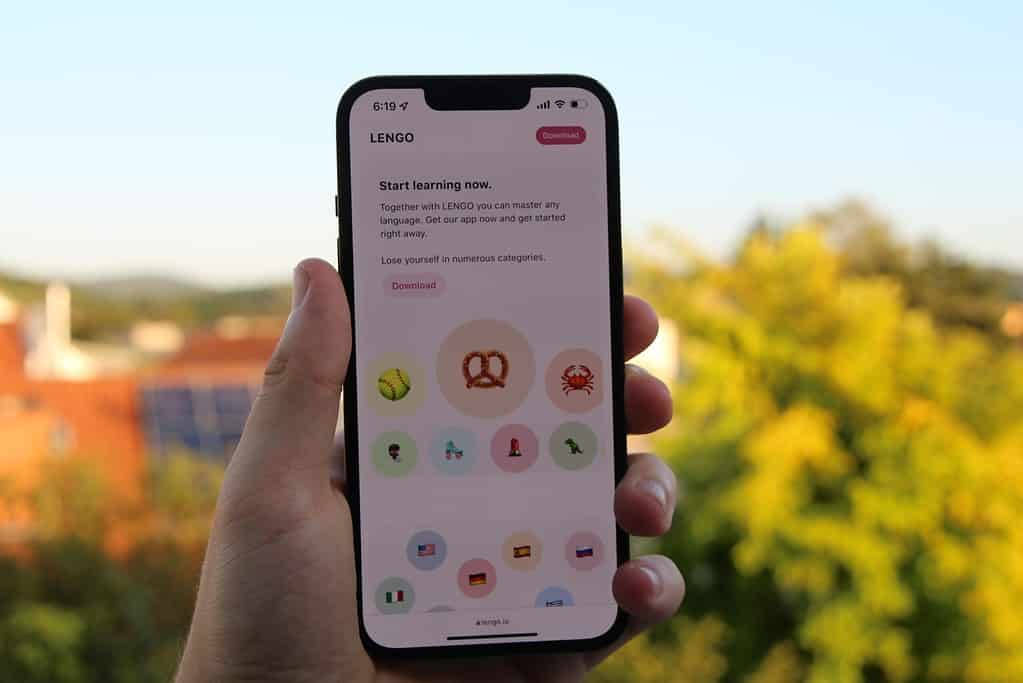Embarking on the journey to learn French can be both exciting and daunting. The French language, with its melodious sounds and rich cultural context, offers a unique opportunity for personal and professional growth. For beginners, mastering conversational French is often the primary goal, as it allows for meaningful interactions and deeper connections with native speakers. This article provides essential tips and strategies to help beginners navigate the intricacies of French conversation.
The Importance of Listening
Before diving into speaking, it is crucial to develop strong listening skills. Listening to native speakers helps in understanding pronunciation, intonation, and the rhythm of the language.
Immerse Yourself in French Media
One of the most effective ways to enhance listening skills is through immersion in French media. Watching French films, listening to music, or tuning into French radio stations can significantly improve comprehension. Try to choose content that interests you, as this will keep you engaged and motivated.
For beginners, starting with children’s shows or cartoons can be beneficial. These programmes often use simpler language and clearer pronunciation, making it easier to follow along. Additionally, many children’s shows incorporate repetitive phrases and familiar vocabulary, which can aid in retention and recall. As you progress, consider branching out to more complex series or films, perhaps even those with subtitles, to challenge yourself while still having the support of visual cues.
Practice Active Listening
Active listening goes beyond just hearing words; it involves understanding and processing what is being said. When listening to French, try to summarise what you’ve heard or jot down new vocabulary. This practice not only reinforces learning but also prepares you for real-life conversations.
Moreover, engaging with podcasts dedicated to language learning can be particularly advantageous. Many of these podcasts are designed for learners at various levels and often include discussions on cultural topics, idiomatic expressions, and practical language usage. By listening to native speakers discussing everyday subjects, you will not only improve your auditory skills but also gain insights into French culture, societal norms, and contemporary issues, enriching your overall understanding of the language.
Building Vocabulary
A robust vocabulary is fundamental to engaging in conversations. Beginners should focus on learning words and phrases that are relevant to everyday situations.

Start with Common Phrases
Familiarising yourself with common phrases can provide a solid foundation for conversation. Greetings, polite expressions, and essential questions are a great place to start. Phrases such as “Bonjour” (Hello), “Merci” (Thank you), and “Comment ça va?” (How are you?) are invaluable in daily interactions.
Additionally, consider creating flashcards with new vocabulary. This can aid in memorisation and provide a quick reference when needed. Flashcards can be particularly effective when used in conjunction with spaced repetition techniques, which help reinforce memory retention over time. You might also find it beneficial to practise these phrases with a language partner or tutor, as this real-time application can significantly enhance your confidence and fluency.
Thematic Vocabulary Lists
Organising vocabulary into themes can make learning more manageable. For instance, focus on categories such as food, travel, or hobbies. This approach not only helps in memorising words but also allows for contextual learning, making it easier to recall terms during conversations.
Furthermore, immersing yourself in the language through themed media can enrich your vocabulary acquisition. Watching films or reading books that centre around specific topics can expose you to the relevant terminology in context, reinforcing your understanding and usage. For example, if you’re interested in cooking, following a French recipe can introduce you to culinary vocabulary while simultaneously enhancing your listening and reading skills. Engaging with the language in such a dynamic way can make the learning process not only effective but also enjoyable.
Practising Speaking Skills
While listening and vocabulary building are essential, speaking practice is where the real mastery occurs. Engaging in conversation helps solidify what has been learned and boosts confidence. It is through speaking that learners can truly express their thoughts, experiment with new vocabulary, and develop a more natural flow of language. The act of verbalising ideas not only reinforces memory but also enhances the ability to think in the target language, which is crucial for achieving fluency.
Find a Language Partner
Connecting with a language partner can be one of the most effective ways to practise speaking. Look for someone who is fluent in French and willing to help you learn. This could be a friend, a tutor, or even an online language exchange partner. The beauty of having a language partner lies in the mutual exchange of knowledge; while you help them with your native language, they can guide you through the nuances of French. This collaborative approach fosters a supportive environment where both parties can learn from each other’s experiences and mistakes.
Regular conversations, even if they are short, can significantly enhance fluency. Don’t be afraid to make mistakes; they are a natural part of the learning process. In fact, many language learners find that discussing everyday topics, such as hobbies or current events, can lead to more engaging and enjoyable conversations. This not only helps in building vocabulary but also encourages the use of idiomatic expressions and colloquialisms that are often overlooked in traditional language study.
Utilise Language Apps
In today’s digital age, language learning apps provide a convenient platform for practising speaking skills. Many apps offer voice recognition features, allowing learners to receive instant feedback on their pronunciation. Engaging with these tools can complement traditional learning methods and provide additional speaking practice. Some apps even incorporate gamified elements, making the learning process more enjoyable and motivating. By setting daily challenges or competing with friends, learners can maintain a consistent practice schedule, which is key to language retention.
Moreover, these applications often include a variety of interactive exercises, from role-playing scenarios to pronunciation drills, which can cater to different learning styles. For instance, if you are a visual learner, you might benefit from apps that include video content or visual aids alongside speaking exercises. This multifaceted approach not only keeps the learning experience fresh but also ensures that users remain engaged and enthusiastic about their language journey.
Understanding French Grammar
Grammar may seem daunting at first, but it is essential for constructing coherent sentences. A solid grasp of basic grammatical rules will enhance conversational skills. In French, the nuances of grammar can significantly alter the meaning of a sentence, making it all the more crucial to understand these principles. For instance, the placement of adjectives can change the emphasis of a statement, and mastering these subtleties can elevate one’s fluency from basic to advanced levels.
Focus on Essential Grammar Rules
Beginners should concentrate on mastering essential grammar rules such as verb conjugations, gender agreements, and sentence structure. Understanding how to form simple sentences will enable learners to express their thoughts more clearly. French verbs can be particularly tricky, as they are categorised into three groups, each with its own set of conjugation patterns. Regularly reviewing these patterns and practicing them in various tenses will help solidify your understanding and application of the language.
Consider using grammar workbooks or online resources that provide exercises tailored for beginners. Regular practice will help reinforce these concepts. Additionally, engaging in language exchange with native speakers can provide invaluable feedback and real-time practice. This interaction not only enhances grammatical accuracy but also builds confidence in using the language in everyday conversations.
Learn Through Context
Rather than memorising grammar rules in isolation, learning through context can be more effective. Reading simple texts or listening to dialogues can help learners see how grammar is applied in real-life situations. This approach makes grammar less intimidating and more relatable. For example, watching French films or listening to French music can expose learners to colloquial expressions and idiomatic phrases, enriching their understanding of how grammar functions within the flow of natural speech.
Moreover, incorporating storytelling into your learning can also be beneficial. By creating short narratives or dialogues, learners can practice using specific grammatical structures in context, which aids retention. This method not only makes the learning process enjoyable but also allows for a deeper connection with the language, as it encourages creativity and personal expression. Embracing these varied approaches will undoubtedly make the journey of mastering French grammar a more engaging and rewarding experience.
Cultural Context in Conversation
Language is deeply intertwined with culture. Understanding cultural nuances can enhance conversational skills and foster deeper connections with native speakers.

Explore French Culture
Engaging with French culture can provide valuable insights into the language. This could involve exploring French cuisine, literature, or history. By understanding cultural references, learners can participate more fully in conversations and appreciate the subtleties of the language. For example, discussing the significance of traditional dishes such as coq au vin or ratatouille not only enriches one’s vocabulary but also opens the door to conversations about regional variations and personal anecdotes related to food. Additionally, delving into French literature—from the works of Victor Hugo to the poetry of Paul Verlaine—can offer learners a glimpse into the historical and emotional landscape of France, allowing for more profound discussions with native speakers.
Learn About Social Etiquette
French social etiquette can differ significantly from that of other cultures. Familiarising oneself with polite forms of address, appropriate greetings, and conversational norms is essential. For instance, using “vous” for formal situations and “tu” for informal ones is an important distinction in French conversation. Moreover, understanding the importance of greetings, such as the customary “Bonjour” when entering a shop or café, can significantly impact the tone of an interaction. It is also worth noting that the French often value a certain level of formality in initial meetings, which may include a firm handshake and maintaining eye contact. As relationships develop, the transition from formal to informal address can be a sign of growing familiarity and trust, making it a crucial aspect of social dynamics in France.
Overcoming Conversation Anxiety
Many beginners experience anxiety when speaking a new language. However, overcoming this fear is crucial for progress.
Embrace Mistakes
Making mistakes is an inevitable part of learning. Embracing these moments as opportunities for growth can alleviate anxiety. Most native speakers appreciate the effort and are often encouraging towards learners. In fact, many find it endearing when someone tries to communicate in their language, even if the pronunciation or grammar is not perfect. This positive reinforcement can serve as a powerful motivator, helping learners to feel more at ease and willing to engage in conversation.
Practice in Low-Stakes Environments
Starting conversations in low-stakes environments can help build confidence. This could involve speaking with fellow learners or engaging in casual conversations with friends. Gradually increasing the complexity of interactions will help ease anxiety over time. Additionally, joining language exchange groups or online forums can provide a supportive community where learners can practice without the pressure of formal assessments. These informal settings often foster a sense of camaraderie, allowing individuals to share their experiences and tips for overcoming similar challenges, thus creating a more relaxed atmosphere for everyone involved.
Utilising Technology for Learning
In the modern age, technology offers a plethora of resources for language learners. From mobile apps to online courses, the options are vast. The convenience of accessing these tools from anywhere means that learners can fit their studies into even the busiest of schedules. Furthermore, the integration of artificial intelligence in some applications allows for personalised learning experiences, adapting to the user’s pace and style of learning, which can significantly enhance retention and engagement.
Online Courses and Tutorials
Many online platforms offer structured courses designed for beginners. These courses often include video tutorials, quizzes, and interactive exercises that can enhance the learning experience. Look for courses that focus specifically on conversational skills. Additionally, some platforms provide opportunities for live interaction with native speakers, which can be invaluable for honing pronunciation and understanding colloquial expressions. The flexibility of online learning also means that students can revisit challenging topics as often as needed, ensuring a solid grasp of the material before moving on.
Language Learning Communities
Joining online language learning communities can provide additional support and motivation. These platforms often feature forums where learners can ask questions, share resources, and connect with others on the same journey. Engaging with a community can make the learning process feel less isolating. Many of these communities also organise virtual meet-ups or language exchange sessions, where members can practice speaking in a friendly and supportive environment. Such interactions not only bolster language skills but also foster friendships across cultures, enriching the learning experience with diverse perspectives and insights.
Setting Realistic Goals
Setting achievable goals is vital for maintaining motivation and tracking progress. Beginners should focus on specific, measurable objectives. This approach not only clarifies what one aims to achieve but also allows for a structured pathway to success. By breaking down larger aspirations into manageable tasks, learners can avoid feeling overwhelmed and instead relish the journey of acquiring new skills.

Short-Term Goals
Establishing short-term goals, such as learning a set number of new words each week or practising speaking for a certain amount of time daily, can provide a sense of accomplishment. These small victories contribute to overall progress and keep learners motivated. For instance, dedicating just fifteen minutes a day to vocabulary practice can lead to the retention of hundreds of words over a few months. Furthermore, incorporating fun activities, like language games or quizzes, can enhance the learning experience and make it more engaging, turning what might seem like a chore into an enjoyable routine.
Long-Term Goals
Long-term goals, such as being able to hold a conversation for a specific duration or understanding a French film without subtitles, provide direction and purpose. Regularly revisiting and adjusting these goals can help maintain focus and enthusiasm throughout the learning journey. It’s also beneficial to visualise these long-term aspirations, perhaps by creating a vision board or journal that outlines the desired outcomes. This tangible representation can serve as a constant reminder of what one is working towards, fostering a deeper connection to the learning process. Additionally, sharing these goals with friends or joining a study group can create a supportive environment, encouraging accountability and camaraderie among learners.
Conclusion
Mastering conversational French is an enriching endeavour that opens doors to new experiences and connections. By focusing on listening, vocabulary building, speaking practice, grammar, cultural understanding, and utilising technology, beginners can develop their skills effectively. Embracing mistakes and setting realistic goals will further enhance the learning experience. With dedication and the right strategies, anyone can become proficient in French conversation and enjoy the beauty of the language.
Take Your French Conversation Skills to the Next Level with Swaplang
Ready to put these tips into action and truly master the art of French conversation? Join Swaplang, the English–French language-exchange platform that connects you with native speakers for personalized one-on-one practice. Whether you’re at home or on the go, you can schedule sessions instantly via browser or mobile. Don’t just learn French—live it by speaking confidently with fluent partners. Sign up now to schedule your live language exchange and embark on a journey to fluency with Swaplang.

















